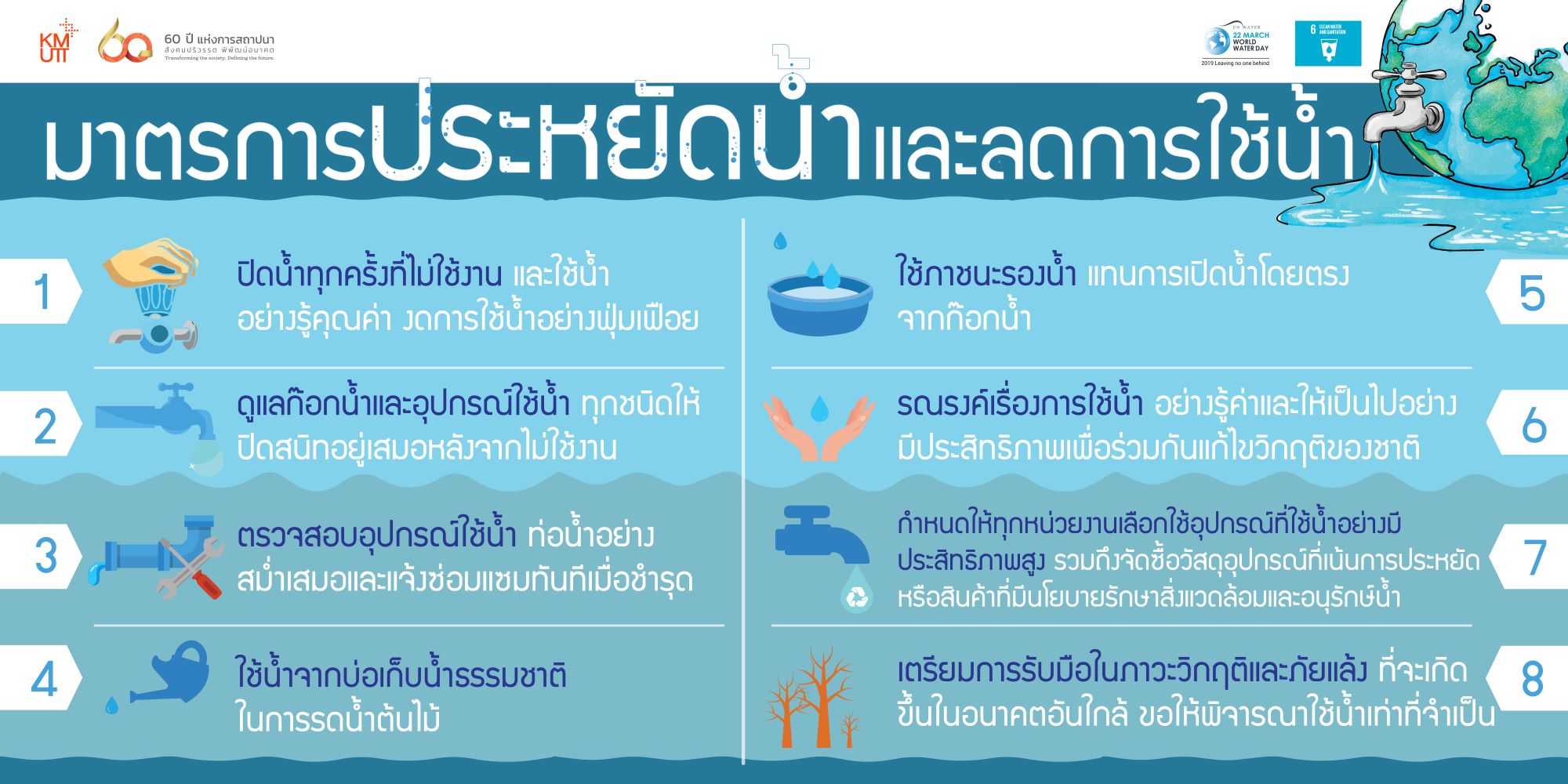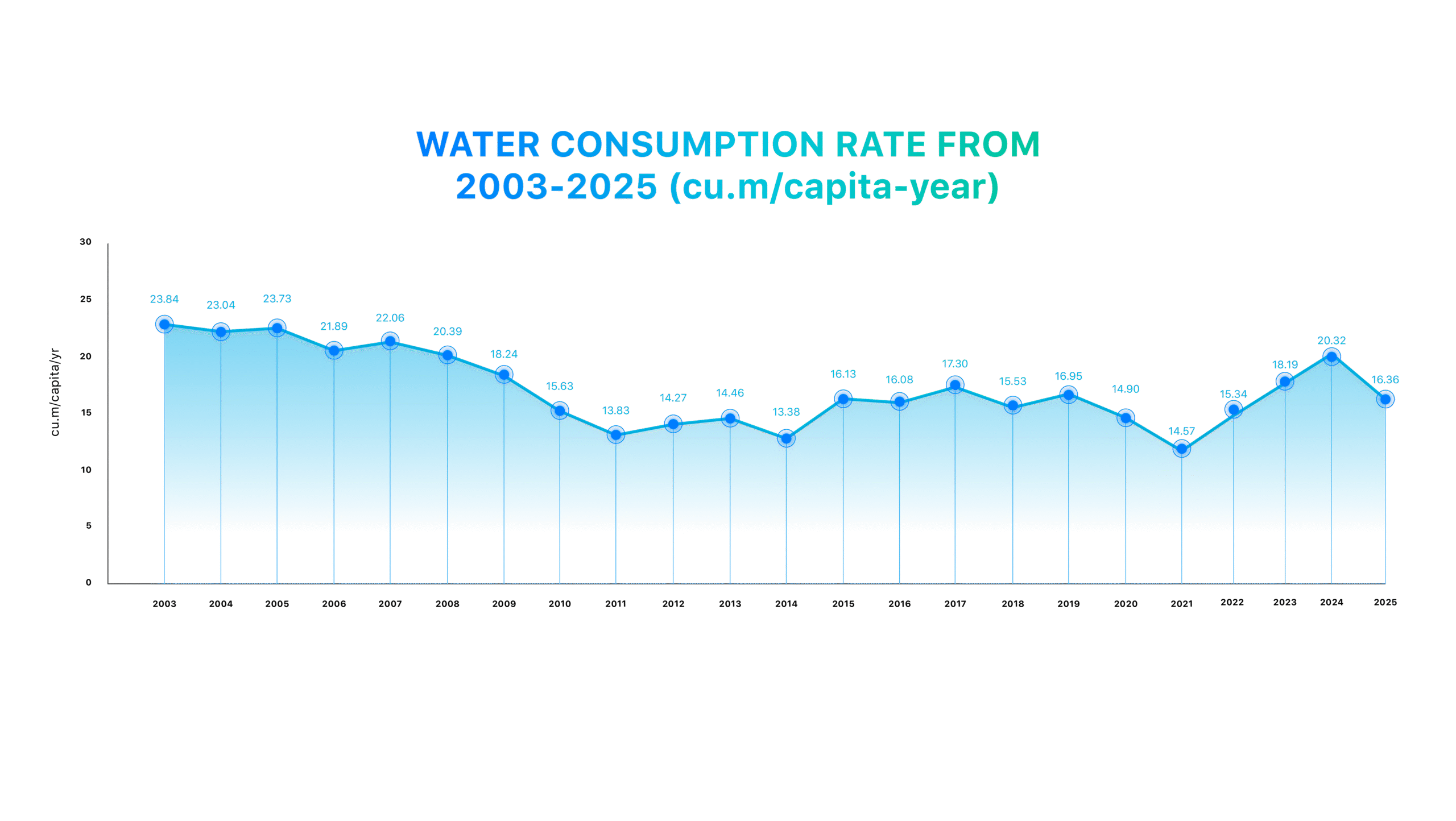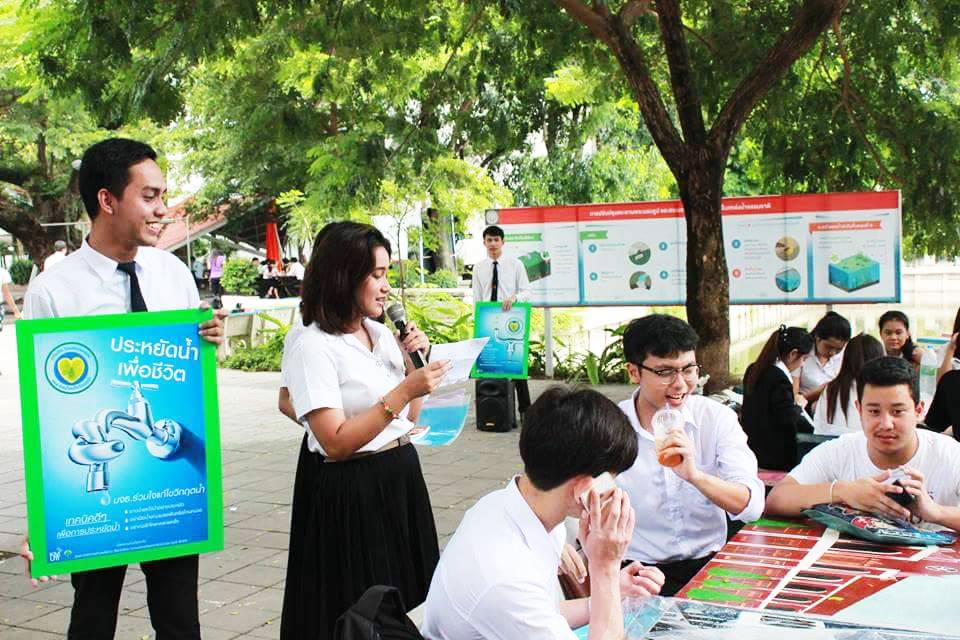
Water Conservation Initiatives at KMUTT: Advancing Sustainable Resource Management
In response to Thailand’s severe drought warnings issued in 2017 by the Meteorological Department, King Mongkut’s University of Technology Thonburi (KMUTT) has continuously enhanced its water conservation and efficiency measures to reduce overall water consumption across all campuses. These initiatives represent the university’s proactive approach to sustainable resource management and climate resilience.
Over the past two decades, the water consumption rate per capita has shown a clear downward trend. Starting at 23.84 cubic meters per capita per year in 2003, the rate gradually declined through consistent conservation efforts, reaching its lowest level at 13.38 cubic meters in 2014. Despite some fluctuations influenced by climate variation and campus activity, the overall trend demonstrates KMUTT’s sustained progress in optimizing water use efficiency.
In 2025, the university’s water consumption rate recorded 16.36 cubic meters per capita per year, reflecting an 11.16% reduction compared with the 2003 baseline. This improvement is attributed to the implementation of eco-sensor water-saving appliances, leak detection programs, rainwater harvesting systems, and university-wide awareness campaigns promoting responsible water use.
Key water-saving practices at KMUTT include:
- Ensuring all taps and fixtures are properly closed to prevent dripping.
- Avoiding unnecessary water use by turning off taps when not in use.
- Conducting routine inspections to detect leaks in pipes, flushing systems, and faucets.
- Promptly repairing defective equipment to prevent water loss.
- Installing water-efficient devices in university buildings and laboratories.
- Implementing rainwater harvesting for landscape irrigation.
- Promoting water conservation through student and staff campaigns.
- Encouraging the use of water containers instead of direct tap flow in cleaning activities.
Through these systematic measures, KMUTT not only reduces its water footprint but also cultivates a strong culture of environmental responsibility among its students, faculty, and staff. The university continues to strive toward its long-term target of a 50% reduction in piped water consumption from the 2003 baseline—setting a benchmark for sustainable water management practices in Thailand’s higher education sector.

Water Saving Campaign
Since 2007, King Mongkut’s University of Technology Thonburi has been committed to fostering sustainable water management through its comprehensive Water Saving Campaigns. These campaigns are grounded in the principle that long-term sustainability requires not only technological solutions but also behavioral transformation within the university community.
1. Principles and Objectives
KMUTT’s water-saving initiatives aim to:
- Promote awareness and behavioral change among students and staff toward responsible water consumption.
- Strengthen the university’s role as a living laboratory for sustainability, where everyday actions reflect environmental values.
- Support the national water conservation strategy and the university’s 50% water reduction target relative to the 2003 baseline.
2. Strategic Implementation
The campaigns employ diverse, participatory approaches to embed conservation values into daily routines:
- Awareness and Communication Media: Posters, pocket guides, leaflets, and stickers are strategically displayed throughout the campus, providing practical water-saving guidelines and reinforcing individual responsibility in resource conservation.
- Interactive Capacity-Building Workshops: Regular workshops equip students and staff with hands-on skills to manage water efficiently, including DIY leak detection, greywater reuse, and installation of water-efficient fixtures both on campus and at home.
- Water Conservation Challenges: Monthly water-saving competitions encourage participants to track and reduce their water use, promoting a spirit of collective engagement. Outstanding participants are honored as “KMUTT Water Champions”, recognizing their leadership in sustainability.
- Digital Engagement: Through social media platforms, KMUTT expands its outreach by sharing water-saving tips, interactive quizzes, and inspiring conservation stories, creating an active and inclusive online sustainability network.
- Annual Water Conservation Fair: This flagship event showcases innovative water-saving technologies, eco-friendly products, and live demonstrations such as rainwater harvesting and efficient irrigation systems. It serves as a forum for knowledge exchange among students, faculty, and external experts.
- Personal Water Footprint Tracking: Participants can assess their individual water consumption through self-evaluation tools, enabling data-driven behavior change and continuous improvement in personal resource management.
3. Outcomes and Impact
Through these multifaceted campaigns, KMUTT has successfully established a culture of environmental stewardship, where water conservation is integrated into the university’s operational practices and daily life. The initiatives have resulted in measurable reductions in water consumption per capita, improved awareness of sustainability principles, and increased engagement among campus stakeholders.
By combining education, participation, and innovation, KMUTT continues to advance its vision of becoming a model sustainable university, ensuring that water conservation evolves from an individual action into a collective culture of responsibility and resilience.ring everyone to contribute to sustainable water management. Through collective action, KMUTT is building a future where conservation is second nature.





